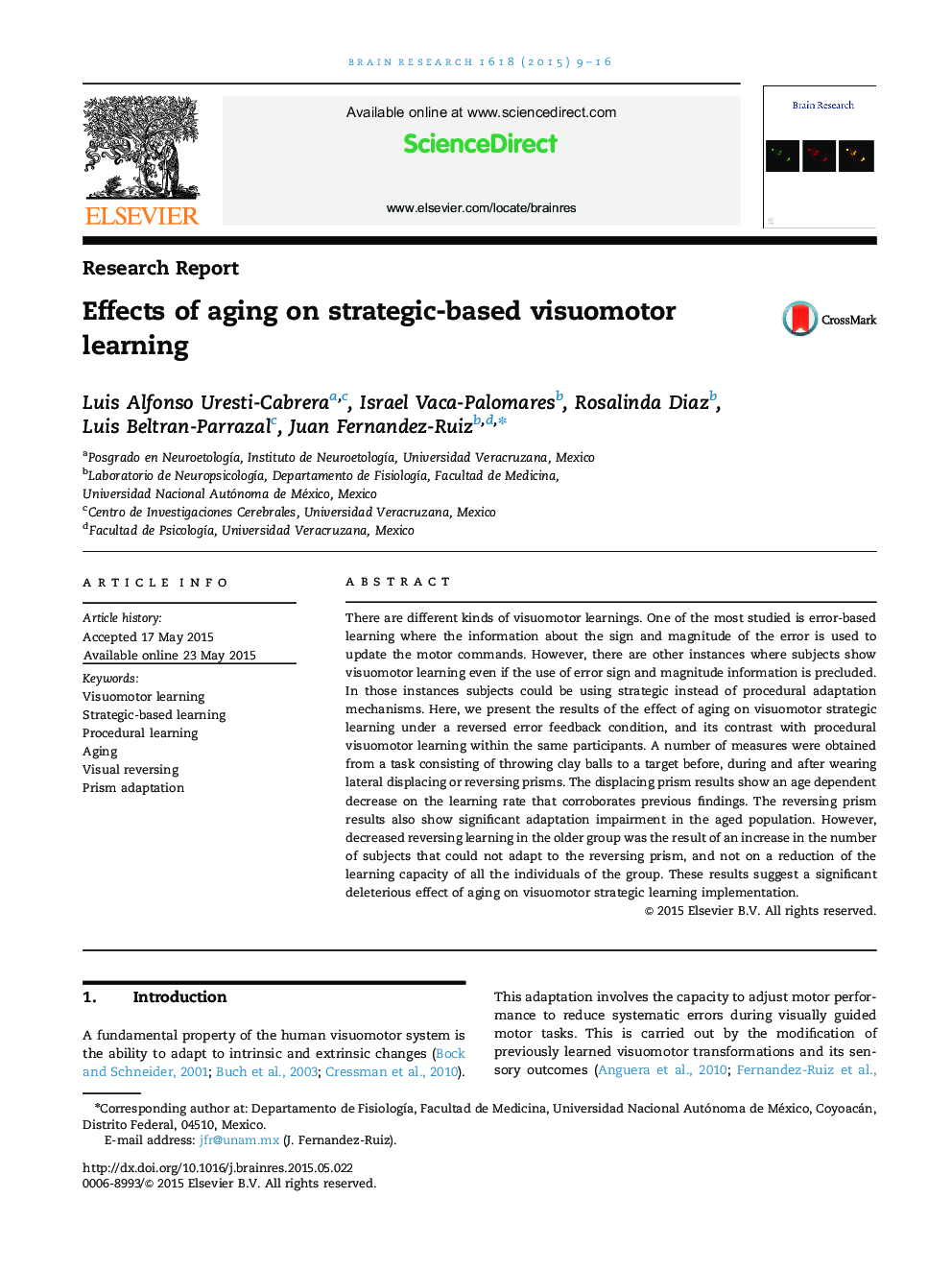| Article ID | Journal | Published Year | Pages | File Type |
|---|---|---|---|---|
| 6263051 | Brain Research | 2015 | 8 Pages |
â¢Here we studied the effect of aging on visuomotor strategic learning.â¢We used inversion and displacement prism adaptation tasks.â¢A significant deleterious effect of aging on visuomotor strategic learning was found.â¢Increased number of elderly subjects did not adapt to the reversing prism.â¢Reversing adaptation primarily depends on the implementation of strategic learning.
There are different kinds of visuomotor learnings. One of the most studied is error-based learning where the information about the sign and magnitude of the error is used to update the motor commands. However, there are other instances where subjects show visuomotor learning even if the use of error sign and magnitude information is precluded. In those instances subjects could be using strategic instead of procedural adaptation mechanisms. Here, we present the results of the effect of aging on visuomotor strategic learning under a reversed error feedback condition, and its contrast with procedural visuomotor learning within the same participants. A number of measures were obtained from a task consisting of throwing clay balls to a target before, during and after wearing lateral displacing or reversing prisms. The displacing prism results show an age dependent decrease on the learning rate that corroborates previous findings. The reversing prism results also show significant adaptation impairment in the aged population. However, decreased reversing learning in the older group was the result of an increase in the number of subjects that could not adapt to the reversing prism, and not on a reduction of the learning capacity of all the individuals of the group. These results suggest a significant deleterious effect of aging on visuomotor strategic learning implementation.
